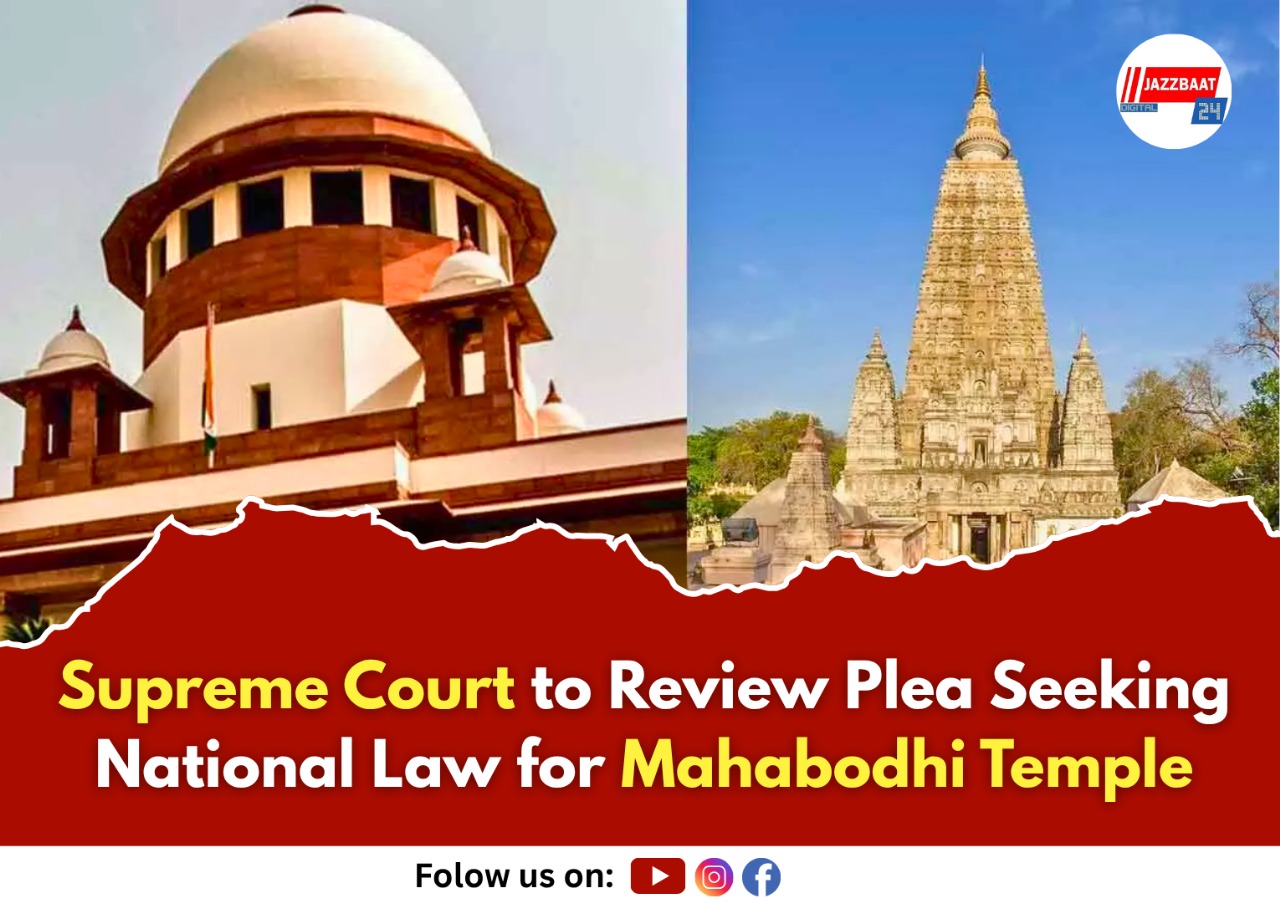
New Delhi:
The Supreme Court on Monday agreed to probe a petition seeking to repeal the Bodh Gaya Temple Act, 1949, and replace it with a central law for the proper control, management and administration of the Mahabodhi Temple in Bihar.
The petition challenges the constitutional validity of the 1949 Act, under which the temple is administered by a nine member Bodh Gaya Temple Management Committee comprising members both from the Hindu and Buddhist communities and chaired ex‑officio by the District Magistrate of Gaya district.
The bench of Justices M M Sundresh and K Vinod Chandran heard the petition under Article 32 of the Constitution but refused to entertain it at the Supreme Court level. The bench observed that the petition was not maintainable before the apex court and advised the petitioner to raise these issues in the appropriate high court.
The plea, filed by former Maharashtra minister Sulekha Narayan Kumbhare, argued that exclusive management control over the Mahabodhi Temple should rest with Buddhists. It contended that the current Act is unconstitutional for violating fundamental rights under Articles 19, 21, 25, 26, 28, and 29 of the Indian Constitution by allowing non‑Buddhists significant control over a shrine of immense significance to Buddhists.
A court official said the Supreme Court bench dismissed the writ petition seeking mandamus, but granted liberty for the petitioner to approach the Patna High Court. “Why don’t you do it before the high court? This is not maintainable under Article 32,” the bench said.
The petitioner asserted that mismanagement by the current committee has endangered the sacred Bodhi tree, under which Gautam Buddha is believed to have attained enlightenment. A committee of the Archaeological Survey of India had expressed concern about the tree’s condition due to poor maintenance.
The Mahabodhi Temple Complex, a UNESCO World Heritage site, houses several revered structures including the Vajrasana, the sacred Bodhi tree and the Lotus Pond, which attract pilgrims from around the world.
In April this year, political leader Upendra Kushwaha also called for an amendment to the Act to ensure that the temple’s governance rests solely with the Buddhist community.
The Supreme Court’s decision confirms that while serious constitutional concerns have been raised, the proper judicial path is via the high court. The order leaves open the potential for fuller legal scrutiny and reform through appropriate legal channels.